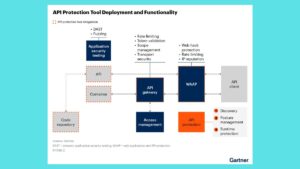HRTech: Transforming HR with Technology and Innovation

The Human Resources (HR) landscape has been undergoing a profound transformation, driven by the integration of technology and innovative solutions. HRTech—short for Human Resources Technology—refers to the broad range of software platforms and tools designed to enhance HR processes, improve efficiency, and elevate employee experiences. In a rapidly evolving digital workplace, HRTech has become an essential component for organizations striving to attract, manage, and retain top talent.
This blog explores how HRTech is reshaping HR functions, the key innovations driving this transformation, and what the future holds for HR professionals in the age of technology.
The Evolution of HRTech
Historically, HR departments were often viewed as administrative hubs, handling payroll, compliance, and employee records manually. However, as the workforce has become more dynamic and the role of HR has expanded to include strategic functions like talent acquisition, employee engagement, and workforce analytics, the need for technology to streamline these tasks has become paramount.
HRTech solutions now encompass a wide array of functionalities, including:
- Recruitment and applicant tracking systems (ATS)
- Performance management and feedback tools
- Employee engagement platforms
- Payroll and benefits management software
- Learning and development platforms
- People analytics and workforce planning tools
These technologies allow HR teams to move beyond time-consuming administrative tasks and focus on value-added activities that directly impact business outcomes.
Key Innovations Driving HRTech Transformation
1. Artificial Intelligence and Automation
Artificial Intelligence (AI) and automation are revolutionizing HR by automating repetitive tasks and providing data-driven insights. AI-powered tools help HR teams screen candidates, schedule interviews, and even answer employee queries through chatbots, significantly reducing the administrative burden on HR professionals.
In recruitment, AI tools can analyze thousands of resumes in seconds, identify the best candidates based on predefined criteria, and predict job fit based on data. This speeds up the hiring process and improves the quality of hires. Automation, on the other hand, streamlines processes like onboarding, compliance management, and payroll, ensuring accuracy and consistency.
2. People Analytics and Data-Driven HR
Data has become a strategic asset for HR departments. People analytics uses data to provide insights into employee behavior, engagement, and performance, helping HR teams make informed decisions about talent management and workforce planning. For example, predictive analytics can identify patterns in employee turnover, allowing organizations to implement proactive retention strategies.
HRTech platforms equipped with analytics capabilities can track KPIs such as time-to-hire, employee satisfaction, and productivity levels, giving HR leaders real-time insights to optimize their people strategy. Data-driven HR also fosters more personalized employee experiences by identifying individual needs and preferences, ultimately improving retention.
3. Employee Experience Platforms
In today’s competitive talent landscape, companies are increasingly focused on creating positive employee experiences. HRTech platforms are designed to enhance every stage of the employee lifecycle, from onboarding to continuous development and engagement.
Employee experience platforms provide employees with a centralized hub where they can access benefits, participate in surveys, receive feedback, and engage with their teams. These tools create a more seamless and interactive work experience, promoting transparency and communication across the organization.
4. Remote Work and Collaboration Tools
The rise of remote and hybrid work models has increased the demand for HRTech solutions that facilitate communication, collaboration, and productivity from anywhere in the world. Tools such as Slack, Microsoft Teams, and Zoom have become critical for maintaining connectivity and fostering collaboration in distributed workforces.
Additionally, HR software solutions are being designed with remote work in mind, offering features like virtual onboarding, performance tracking, and team-building activities. HR departments can now manage employee well-being and engagement across locations while ensuring compliance and streamlined communication.
5. Learning and Development Platforms
As employees seek continuous growth and upskilling opportunities, learning and development (L&D) platforms have become a vital part of the HRTech ecosystem. These platforms offer personalized learning paths, certifications, and on-demand training content to help employees develop new skills aligned with their career goals.
AI-powered L&D platforms can recommend relevant courses based on an employee’s current role, performance, and career aspirations. By investing in employee development through technology, companies can retain top talent, boost engagement, and improve overall productivity.
The Benefits of HRTech Adoption
1. Increased Efficiency
HRTech solutions automate many of the time-consuming tasks that traditionally required manual intervention, such as payroll processing, benefits administration, and employee data management. This automation frees up HR teams to focus on strategic initiatives, like improving workplace culture and employee retention.
2. Enhanced Employee Engagement
HRTech platforms enable a more personalized and interactive employee experience, leading to increased engagement and satisfaction. Whether it’s offering employees access to self-service tools, facilitating regular feedback, or providing learning opportunities, these platforms help employees feel more connected to their work and the organization.
3. Data-Driven Decision Making
By leveraging data and analytics, HR departments can make more informed decisions related to hiring, performance management, and workforce planning. Predictive analytics can also help identify potential challenges, such as turnover risk or skills shortages, allowing organizations to proactively address these issues.
4. Improved Talent Acquisition and Retention
With advanced recruitment and talent management tools, HR departments can streamline the hiring process, attract high-quality candidates, and make data-driven hiring decisions. These tools also help in building a strong employer brand, which is critical for retaining top talent.
5. Cost Savings
By automating routine HR processes and reducing the time spent on manual tasks, HRTech platforms can lead to significant cost savings for organizations. Additionally, by minimizing errors in areas like payroll and compliance, HRTech can reduce the financial risks associated with manual processes.
The Future of HRTech
As HR continues to evolve into a more strategic function, the role of HRTech will only grow in importance. Several trends are expected to shape the future of HRTech:
- Greater use of AI and machine learning to enhance personalization in HR processes, from recruitment to career development.
- Integration of blockchain technology for secure, transparent, and efficient management of employee data and credentials.
- Focus on mental health and well-being through wellness platforms that offer personalized support, mental health resources, and employee assistance programs.
- Virtual and augmented reality (VR/AR) to create immersive training programs and virtual collaboration spaces for remote teams.
Conclusion
HRTech is fundamentally transforming how HR departments operate, from simplifying administrative tasks to improving employee engagement and driving better business outcomes. As companies continue to adopt digital solutions, HRTech will remain a cornerstone of effective talent management and organizational success.
Organizations that embrace HRTech innovations will not only streamline their HR processes but also create more meaningful employee experiences, enabling them to stay ahead in an increasingly competitive talent market. The future of HR lies in the intersection of people and technology, and those who leverage this synergy will thrive in the evolving workplace.






